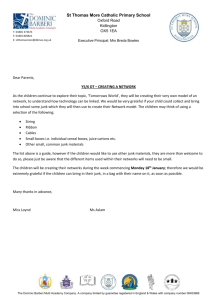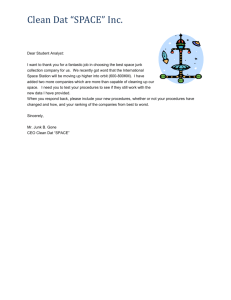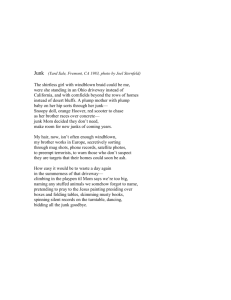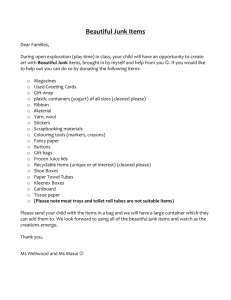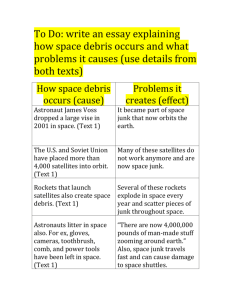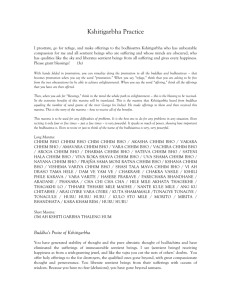Richard Wilbur - Arapahoe High School
advertisement
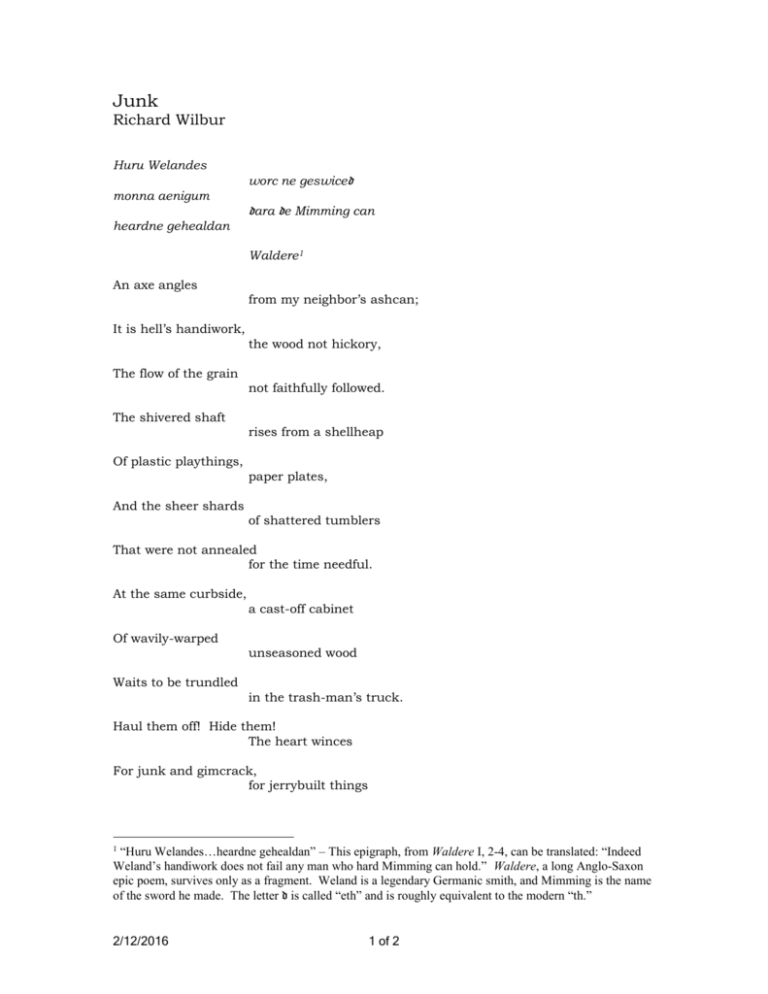
Junk Richard Wilbur Huru Welandes worc ne geswiced monna aenigum heardne gehealdan dara de Mimming can Waldere1 An axe angles from my neighbor’s ashcan; It is hell’s handiwork, the wood not hickory, The flow of the grain not faithfully followed. The shivered shaft rises from a shellheap Of plastic playthings, paper plates, And the sheer shards of shattered tumblers That were not annealed for the time needful. At the same curbside, a cast-off cabinet Of wavily-warped unseasoned wood Waits to be trundled in the trash-man’s truck. Haul them off! Hide them! The heart winces For junk and gimcrack, for jerrybuilt things “Huru Welandes…heardne gehealdan” – This epigraph, from Waldere I, 2-4, can be translated: “Indeed Weland’s handiwork does not fail any man who hard Mimming can hold.” Waldere, a long Anglo-Saxon epic poem, survives only as a fragment. Weland is a legendary Germanic smith, and Mimming is the name of the sword he made. The letter d is called “eth” and is roughly equivalent to the modern “th.” 1 2/12/2016 1 of 2 And the men who make them for a little money, Bartering pride like the bought boxer Who pulls his punches, or the paid-off jockey Who in the home stretch holds in his horse. Yet the things themselves in thoughtless honor Have kept composure, like captives who would not Talk under torture. Tossed from a tailgate Where the dump displays its random dolmens, Its black barrows and blazing valleys, They shall waste in the weather and toward what they were. The sun shall glory in the glitter of glass-chips, Foreseeing the salvage of the prisoned sand, And the blistering paint peel off in patches, That the good grain be discovered again. Then burnt, bulldozed, they shall all be buried To the depths of diamonds, in the making dark Where halt Hephaestus keeps his hammer And Wayland’s work is worn away. 2/12/2016 2 of 2
